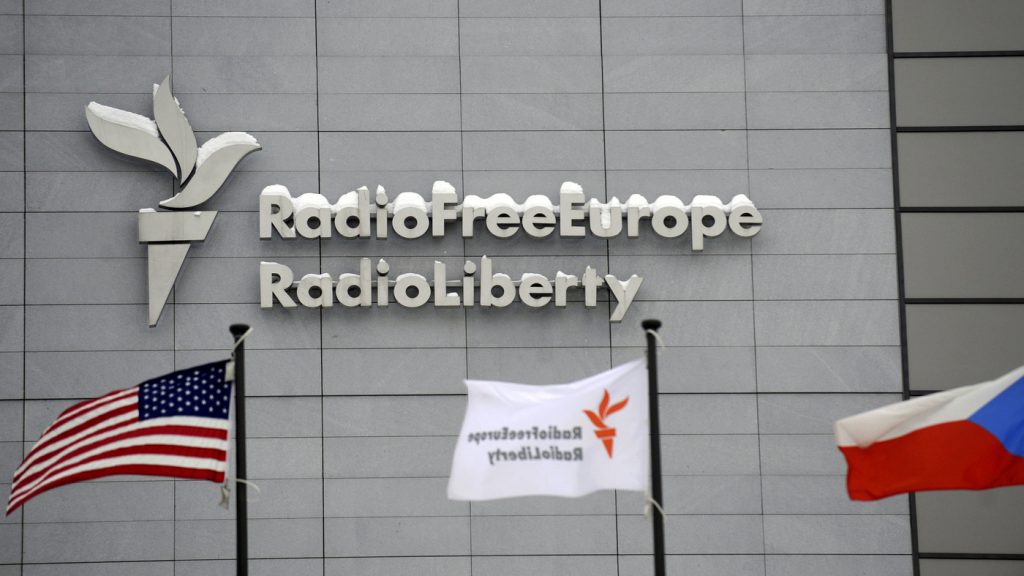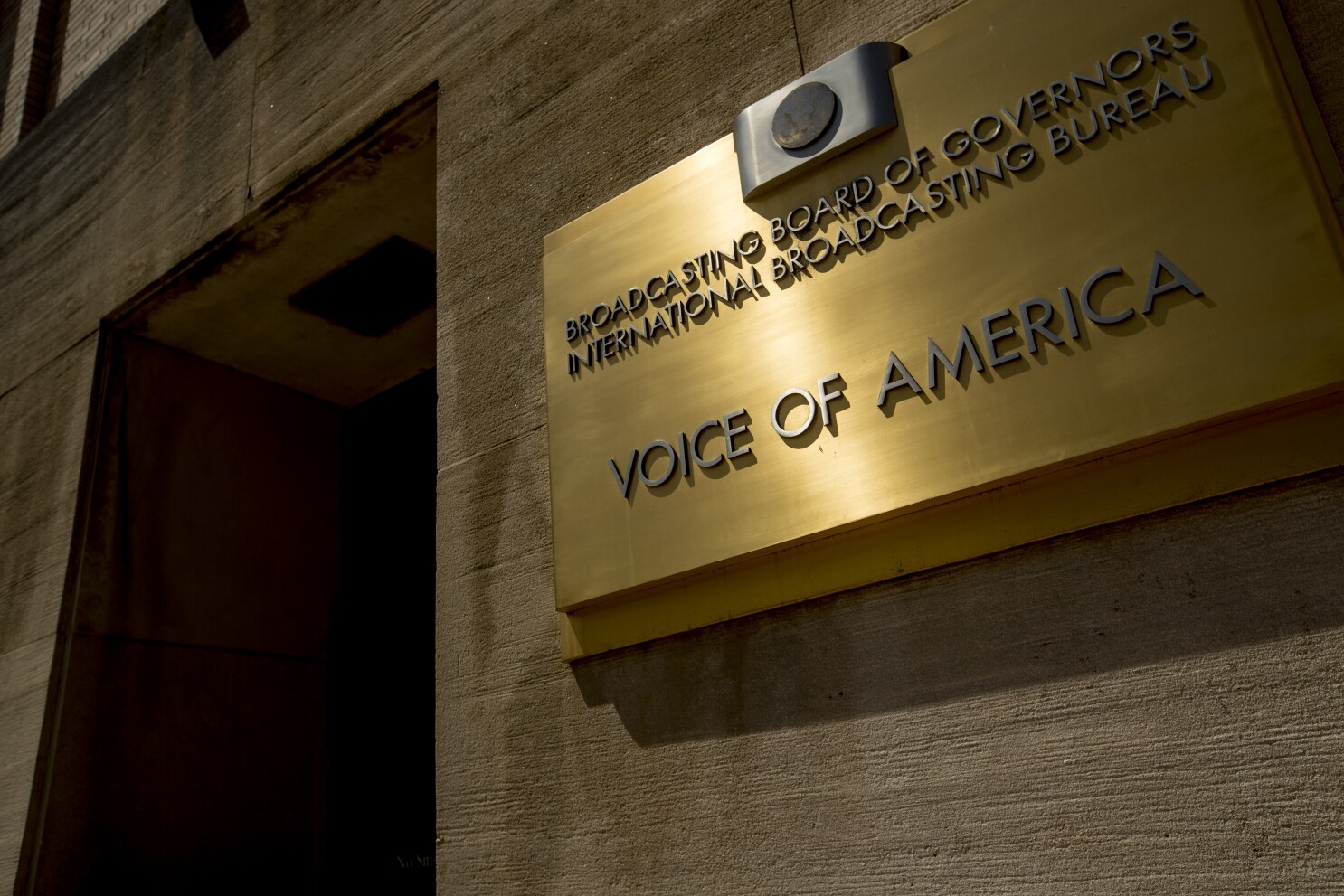The Trump administration has abruptly placed journalists at Voice of America (VOA) and other US-funded broadcasters on leave, effectively halting the operations of outlets long regarded as vital in countering Russian and Chinese influence.
Hundreds of staff members at VOA, Radio Free Asia, and Radio Free Europe/Radio Liberty (RFE/RL) received a weekend email notifying them that they were barred from their offices and instructed to surrender their press credentials, work phones, and other equipment.
On Friday, President Donald Trump issued an executive order designating the US Agency for Global Media (USAGM)—which oversees these broadcasters—as part of the federal bureaucracy deemed “unnecessary.” This decision follows his previous budget cuts to the US aid agency and the Department of Education.

Kari Lake, a staunch Trump ally and former Arizona news anchor who was appointed to lead USAGM after losing a Senate race, informed the affected media outlets that federal grants funding their work no longer served “agency priorities.” Meanwhile, White House press official Harrison Fields took a more dismissive approach, posting “goodbye” in 20 languages on X, mocking VOA’s multilingual broadcasts.
RFE/RL President Stephen Capus condemned the decision, calling it “a massive gift to America’s enemies.”
“The Iranian ayatollahs, Chinese communist leaders, and autocrats in Moscow and Minsk would celebrate the demise of RFE/RL after 75 years,” Capus said. “Handing our adversaries a win would make them stronger and America weaker.”
Originally launched to counter Soviet influence, US-funded broadcasters have shifted focus in recent decades to monitoring Russia and China. Radio Free Asia, founded in 1996, provides uncensored journalism in nations with state-controlled media, including China, Myanmar, North Korea, and Vietnam.
Despite being government-funded, these outlets maintain an editorial firewall, ensuring journalistic independence. However, some within Trump’s inner circle have long criticised this approach, believing that publicly funded media should align more closely with White House policies.


 Trending
Trending 